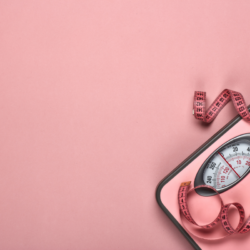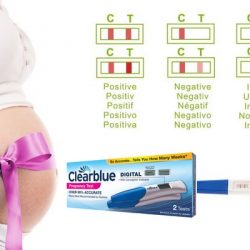The big day of baby’ s birth is approaching, and it’s time to look at the famous maternity suitcase, often a source of questions for expectant mothers, especially for a first baby. Of course, between the list given by the maternity hospital itself, those found on the internet and those in pregnancy books, you already have 15 lists of essentials to pack in your maternity suitcase. However, experience has shown that there are often a few essentials missing, especially the homeopathic kit!
Why pack a homeopathic kit for the maternity ward?
Between moments of intense joy and difficult moments, childbirth is a special event in a woman’s life.Homeopathy can be an effective solution for coping with every situation.
Here’s a homeopathic protocol to follow to prepare your body and mind and give you a little extra help to enjoy the most beautiful of childbirths.
Homeopathy: a gentle, natural approach for expectant mothers
Homeopathy offers a gentle, natural approach to supporting expectant mothers throughout their maternity journey. By choosing specific homeopathic remedies, pregnant women can ease common discomforts, promote healing after childbirth and support their emotional well-being. Here are some key points that may be of interest to expectant mothers:
A natural alternative with no side effects
Unlike conventional medicines, which can have unwanted side effects, homeopathic remedies are highly diluted and considered safe, with no known side effects. This makes them an attractive option for women who prefer to avoid chemical substances during pregnancy and breastfeeding.
Relieving the discomforts of pregnancy
Pregnancy is often accompanied by various discomforts such as nausea, heartburn, backache and insomnia. Homeopathy offers specific remedies for each symptom, providing natural relief tailored to each woman’s individual needs.
Preparing for childbirth
Homeopathy can also play an important role in preparing for childbirth. Homeopathic remedies can stimulate contractions, promote regular labour and help manage anxiety and fear related to childbirth. They offer all-round support to help women feel prepared and confident on the big day.
Post-partum recovery
After giving birth, a woman’s body needs time to recover. Homeopathy can help speed up the healing process, reduce bruising, relieve pain and restore hormonal balance. Homeopathic remedies can also help treat episiotomy scars, perineal tears and associated pain.
What should a homeopathic maternity kit contain?
Gelsemium 30CH :
Before entering the delivery room, you may feel emotional due to anticipatory jitters, manifesting as stress,anxiety, stage fright… Don’t worry, this is completely natural behaviour. You’re about to take the plunge into the great unknown and give birth! How can you remain impassive in the face of such an event? The father may also be taking this strain at the same time as you, risking panicking as much as you, if not more
Recommended dosage: Take 1 dose of Gelsemium granules as soon as you feel the need and your fear is at its peak.
Arnica 9CH :
In order to gently prepare your body to undergo all these changes in the hours to come, this strain is one of the essentials to help your body cope with exertion during childbirth, and in the aftermath of aches and bruises.
Dosage: Take 1 dose on entering the delivery room, then take 5 granules 2 times a day after the birth until the end of the tube.
Use of the homeopathic remedy Arnica in pregnant women :
- Muscle and joint pain: Recommended to relieve muscle and joint pain common during pregnancy.
- After childbirth: Used to reduce pain, swelling and bruising following childbirth, particularly after vaginal delivery.
- Prevention of stretch marks: May be recommended to help prevent or treat stretch marks caused by pregnancy.
- Fatigue and exhaustion: Helps combat fatigue and exhaustion, which are common during pregnancy.
- Minor shocks and trauma: Indicated in the event of minor shocks or trauma, such as a slight fall, to reduce bruising and oedema.
- Preparation for childbirth: Sometimes recommended before childbirth to prepare the body and reduce the risk of excessive bleeding.
- Blood circulation: Can be used to improve blood circulation and reduce swelling of the legs.
China rubra (officinalis) 9CH :
After giving birth, your body is exhausted; it has drawn on all your strength to bring a marvel into the world. This strain will therefore be your ally in helping you to recover quickly. It is indicated for general weakness and any suffering resulting from blood loss.
Recommended dosage: Take 5 granules of this homeopathic remedy twice a day from the day after giving birth until complete recovery.
Indications for China Rubra in pregnant women :
- Fatigue and exhaustion: Used to combat intense fatigue, particularly after loss of body fluids (bleeding, diarrhoea).
- Anaemia: Recommended in cases of anaemia, particularly linked to blood loss or nutritional deficiency.
- Digestive disorders: Effective against digestive disorders such as bloating, gas and indigestion.
- Fluid loss: Prescribed after significant fluid loss, such as severe diarrhoea or bleeding.
- Balancing blood circulation: Helps to regulate blood circulation, useful in cases of dizziness or temporary weakness.
- Immune support: May be recommended to strengthen a weakened immune system.
- Prevention and treatment of cramp: Recommended for preventing or treating cramp and muscle pain.
Apis mellifica 15CH in combination with Bryonia alba 9CH :
If you choose to breastfeed your baby, this synergy can be very useful in soothing the pain caused by congestion during the first milk flow, or even in the case of vulvar oedema.
Recommended dosage: Take 5 granules of each strain with each feed.
Indications for Apis Mellifica in pregnant women :
-
- Swelling and oedema: Effective in reducing swelling and oedema, particularly in the legs, which are common during pregnancy.
- Insect bites: Used to relieve itching and swelling caused by insect bites.
- Urinary tract infections: Prescribed to treat symptoms of urinary tract infections such as burning during urination, a common problem during pregnancy.
- Allergic reactions: Helps soothe mild allergy symptoms, such as rashes or hives.
- Skin problems: Recommended for skin problems such as erythema, irritation or itching.
- Joint pain: May be indicated for joint pain or stiffness, particularly that which worsens with heat.
- Kidney comfort: Helps with kidney comfort, useful in cases of pain or burning sensations in the kidneys.
It is essential to stress that any homeopathic treatment taken during pregnancy, including Apis Mellifica, must be carried out under the supervision of a health professional to ensure safety for the pregnant woman and the foetus.
Indications for Bryonia in pregnant women:
- Joint and muscle pain: Used to relieve muscle and joint pain, particularly pain which worsens with movement and improves with rest.
- Dry cough: Prescribed in cases of irritating dry cough, often exacerbated by lying down.
- Constipation: Effective in treating constipation, a frequent problem during pregnancy, particularly if stools are dry and difficult.
- Headaches: Indicated for headaches linked to tension or dehydration, with a sensation of heaviness or pressure.
- Irritability and need for solitude: Suitable for pregnant women experiencing irritability and a desire to be left alone, especially when in pain.
- Skin problems: Used for certain dry, scaly skin conditions that appear or worsen during pregnancy.
- Chest discomfort: May be recommended for chest pain associated with coughing or breathing, especially when movement intensifies the discomfort.
Staphysagria 15CH :
In the event of an episiotomy, this strain will be of great help in relieving sensitivity due to the after-effects of an injury.
Indications for Staphysagria :
- Surgery: Used after surgery to soothe pain and promote healing.
- Psychosomatic pain: Effective for pain resulting from repressed anger or frustration.
- Skin problems: Treatment of skin conditions such as acne or stress-related rashes.
- Urinary tract infections: Prescribed to relieve the symptoms of urinary tract infections, particularly after frustration or emotional trauma.
- Dental problems: Indicated for dental pain, especially after dental treatment or surgery.
- Behavioural problems in children: Useful for children with impulsive behaviour or problems related to enuresis.
- Emotional support: Recommended for individuals suffering from mild depression, anxiety or recent emotional shocks.
- Gynaecological complaints: Used to treat certain gynaecological complaints and pain, particularly post-surgical.
Recommended dosage: Take 5 granules of Staphysagria 2 times a day until sensitivity improves.
Alfalfa 6DH in combination with Ricinus 5CH :
If you choose to breast-feed your baby, but once your baby is born your first milk supply is delayed, this synergy can help you to stimulate lactation.
Dosage: Take 5 granules of Alfalfa and Ricinus 3 to 6 times a day for several weeks.
Indications for Alfalfa in pregnant women :
- General strengthening: Recommended for strengthening the general condition of pregnant women, due to its richness in nutrients and vitamins.
- Fatigue and exhaustion: Effective in combating fatigue and exhaustion, often experienced during pregnancy.
- Improved appetite: Useful for stimulating the appetite, particularly in cases of loss of appetite during pregnancy.
- Digestive support: Helps improve digestion and reduce bloating and indigestion.
- Bone health: May be beneficial for bone health, thanks to its content of calcium and other essential minerals.
- Hormone balancing: Helps balance hormone levels, contributing to overall well-being.
- Breast milk enrichment: Potentially useful for enriching the quality of breast milk, due to its nutrient-rich composition.
Caulophyllum 5CH
Homeopathy can play a role in supporting the birthing process, particularly until the cervix is fully open. For situations such as painful contractions that do not alter the state of the cervix, a homeopathic specialist, such as a doctor or midwife, may recommend taking Caulophyllum 5 CH, 5 granules every fifteen minutes. It is important to note that homeopathy does not change the physiological nature of childbirth, which varies from one woman to another. Some women give birth quickly, while others take longer. Furthermore, it should be emphasised that no homeopathic treatment can prevent the risks of premature labour.
FAQ
Can I use homeopathy during pregnancy?
Absolutely! Homeopathy is safe to use during pregnancy, under the supervision of a qualified homeopathic practitioner or midwife. It offers a gentle, natural approach to relieving various discomforts and promoting overall well-being.
Are there any side effects with homeopathic remedies?
Homeopathic remedies are highly diluted, which ensures that they are extremely safe to use, with no known side effects.
Can I take homeopathic remedies at the same time as conventional medicines?
Generally speaking, homeopathic remedies are considered compatible with conventional medicines. However, a healthcare professional should be consulted to avoid any potential interactions or contraindications.
How should I store my homeopathic remedies?
Homeopathic remedies should be stored in a cool, dry place away from strong odours, sunlight and electromagnetic fields. Avoid storing them near essential oils, coffee or any other substance with a strong odour, as this could affect their effectiveness.
How do I choose the right dilution and dosage?
Selecting the appropriate dilution and dosage of a homeopathic remedy can be complex and depends on each individual’s symptoms and overall health. It is best to consult a qualified homeopathic practitioner who can provide personalised recommendations based on your specific needs.
Can homeopathy replace traditional medical care during pregnancy and childbirth?
Although homeopathy can be a valuable tool to support your well-being during pregnancy and childbirth, it should not replace traditional medical care. It is important to work with your healthcare professional to ensure comprehensive care for you and your baby.
Conclusion
Putting together a homeopathic maternity first aid kit is a great way to feel prepared during this time of transformation. By including essential remedies such as Arnica Montana, Caulophyllum and Pulsatilla, you’ll have a natural kit to relieve common discomforts and support your well-being. Don’t forget to consult a qualified homeopathic practitioner or midwife for personalised recommendations and advice. With your homeopathic first aid kit ready, you can approach pregnancy, childbirth and the post-partum period with confidence and peace of mind.





